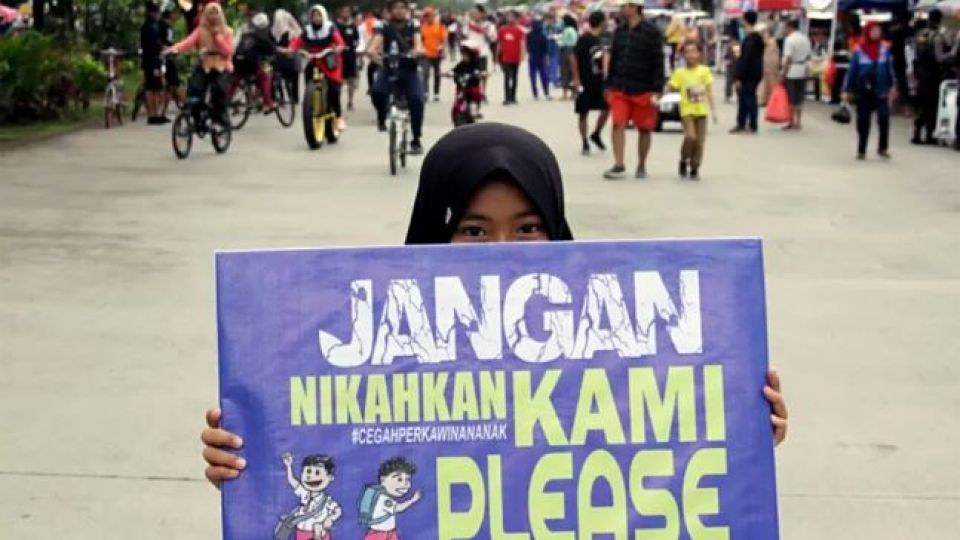July 3, 2024
JAKARTA – The recent engagement of a 12 year-old girl to a widower with one child in Madura Island, East Java, has sparked fresh calls from the public to end child marriage, which remains rampant in Indonesia.
A viral video circulated across different online platforms showed that the betrothal was celebrated by inviting neighbors to a feast at the home of the prospective “bride”. Upon arriving, the guests congratulated the girl and gave her money as gifts for entering the next stage in her life.
The video was met with outrage from netizens who said the girl should be going to school instead. Some acknowledged the engagement of minors in Madura was a local tradition, but they demanded it be brought to an end.
Khoirul Rosyadi, professor of sociology at Trunojoyo Madura University, said the tradition, known as abekalan, had been practiced for generations in the predominantly Muslim region of Madura, with the supposed intention of protecting children from extra-marital sex, as well as to strengthen relationships between families.
Financial problems are also one of the causal factors of the rampant marriage of minors in Madura, and across the country. The United Nations Children’s Fund (UNICEF) has cited Indonesia as the fourth-biggest contributor to child marriages globally, with more than 25 million cases.
Khoirul noted that the trend had been declining over the years as more families became aware of the importance of education for their offspring. This claim is supported by Statistics Indonesia (BPS) data that show the decreasing prevalence of child brides in Indonesia from 12 percent in 2015 to 8 percent in 2022.
The country, however, still has a great deal of work to do to eradicate the practice altogether by 2030, as stipulated in the UN’s Sustainable Development Goals (SDGs). Child marriage is perceived as a major factor behind domestic violence, high infant mortality and various health issues afflicting young women.
Khotimun Sutanti of the Legal Aid Foundation of the Indonesian Women’s Association for Justice (LBH APIK) said child marriage was very detrimental to children. “It leaves children vulnerable to domestic violence and various health problems”.
Activists have called on the government to strictly enforce regulations to reduce the prevalence and meet the SDG target.
Loophole
The country has amended the 1974 Marriage Law to increase the minimum age for marriage to 19 for both sexes from the previous 16 for girls and 19 for boys, following a 2018 Constitutional Court ruling that declared the previous provisions unconstitutional.
Parents, however, can request dispensations for their children from religious courts or district courts, which has been widely criticized as a loophole in the system. Official data show more than 43,000 marriage dispensations were proposed nationwide last year, with 92 percent of them being granted.
In November 2019, the Supreme Court issued guidance for judges to deal with exemptions for children under the age of 19. The handbook detailed the dos and don’ts when processing the dispensations to reduce the marriage rate.
But some of the handbook’s wording is vague, said senior official at the Supreme Court Arief Hidayat, allowing child marriage to continue. In handling petitions for a marriage dispensation, a judge “may” hear the child’s statement without the presence of the parents, Arief went on.
“This word ‘may’ is the problem as it makes the procedure non-binding,” he stated during a discussion last Thursday.
Previous research by the Australia Indonesia Partnership for Justice (AIPJ2) found that in nearly half of the court dispensation cases, the children seeking to wed did not attend the hearings.
“This means that court rulings were made without judges hearing directly from these children what their views on the marriage were,” said Leisha Lister of the AIPJ2.
Rini Handayani of the Women’s Empowerment and Child Protection Ministry said on Thursday that the ministry was currently drafting a presidential regulation on child marriage prevention and developing strategic plans with local governments to tackle the issue.


